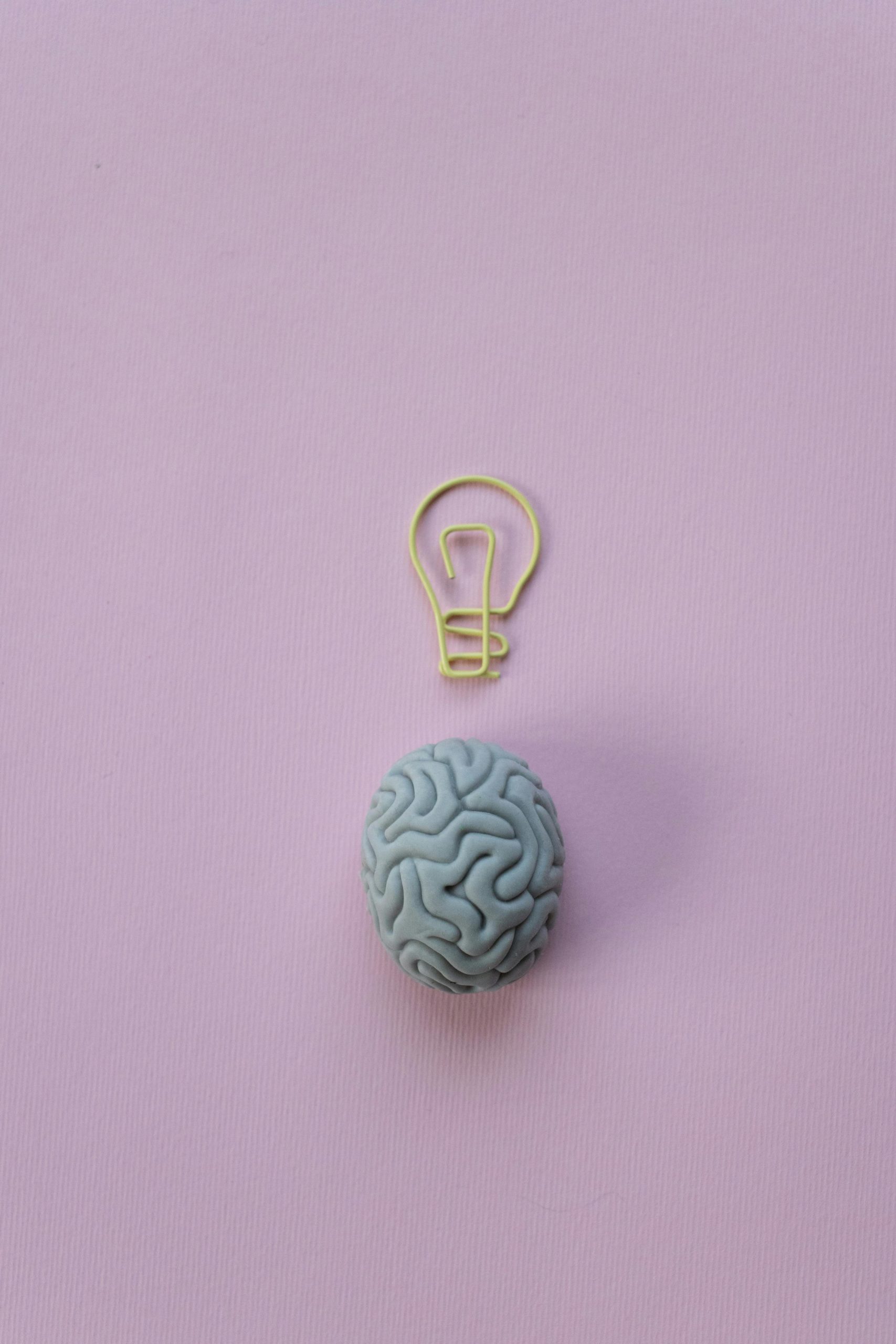Pickleball is not just a physical game; it’s also a mental game. In the heat of competition, mental toughness can often be the determining factor between victory and defeat on the court. In this blog post, we delve into the psychological aspects of pickleball and explore strategies to develop and maintain mental toughness for peak performance.
Understanding The Mental Game

Pickleball is a sport that demands not only physical prowess but also mental fortitude. To excel on the court, players must navigate a complex landscape of psychological challenges. Understanding the mental game involves recognizing these challenges and developing strategies to overcome them effectively. Sign up for weekly gear deals! Get Pickleball Gear deals sent straight to your inbox.
Managing Nerves In the Mental Game of Pickleball:
Nervousness is a common experience for pickleball players, especially before important matches or during critical points. Learning to manage nerves involves techniques such as controlled breathing, visualization, and focusing on the process rather than the outcome. By acknowledging nerves as a natural part of competition and channeling that energy into positive performance, players can maintain composure and perform at their best.
Staying Present In the Mental Game:
The fast-paced nature of pickleball can sometimes lead players to dwell on past mistakes or worry about future outcomes, detracting from their focus on the present moment. Staying present involves mindfulness techniques that help players ground themselves in the here and now, such as paying attention to breath, sensations, and the sounds of the game. By staying mentally engaged in the current point, players can make split-second decisions and react effectively to their opponents’ moves.
Visualizing Success:
Visualization is a powerful tool for enhancing performance in pickleball. By mentally rehearsing successful plays, strategies, and outcomes, players can reinforce positive patterns of behavior and build confidence in their abilities. Visualization techniques can involve imagining specific scenarios, such as executing a perfect serve or executing a winning shot under pressure, and visualizing the sensations, emotions, and outcomes associated with success. Check out this Blog Post on the winning mindset in pickleball.
Setting Goals:
Goal-setting is an integral part of the mental game in pickleball. By setting specific, measurable, achievable, relevant, and time-bound (SMART) goals, players can focus their efforts and motivation toward continuous improvement. Whether it’s improving consistency in serves, mastering a new shot technique, or achieving a specific ranking milestone, setting goals provides players with direction and purpose in their training and competition.
Analyzing Performance:
Reflecting on performance is essential for growth and development in pickleball. After matches or practice sessions, players can benefit from analyzing their performance objectively, identifying strengths, weaknesses, and areas for improvement. By adopting a growth mindset and viewing setbacks as opportunities for learning and growth, players can refine their skills, strategies, and mental approach to the game over time. Nutrition can also help your mental game for pickleball. Check out this Blog Post on Nutrition tips for Pickleball
Understanding the mental game in pickleball is an ongoing process that requires self-awareness, intentionality, and commitment. By recognizing the psychological challenges inherent in the sport and implementing strategies for managing nerves, staying present, visualizing success, setting goals, and analyzing performance, players can cultivate the mental toughness needed to excel on the court.
Embracing Resilience In your Mental Game

Resilience is a critical component of mental toughness in pickleball, helping players navigate through challenges and setbacks with grace and determination. Embracing resilience involves developing a mindset that enables players to bounce back from adversity. Maintain confidence, and continue performing at their best despite obstacles. Here’s a deeper look into how players can cultivate resilience on the pickleball court.
Learning from Setbacks:
In pickleball, setbacks are inevitable. Whether it’s losing a point, a game, or even a match, every player faces moments of disappointment and frustration. However, resilient players view setbacks as opportunities for growth and learning. Instead of dwelling on failures, they analyze what went wrong, identify areas for improvement, and adjust their strategies accordingly. By reframing setbacks as valuable learning experiences, players can extract lessons that propel them forward in their development.
Developing a Growth Mindset:
Resilient players adopt a growth mindset, believing that their abilities can be developed through dedication and effort. Unlike a fixed mindset, which sees talents and skills as innate traits, a growth mindset embraces the belief that challenges and failures are essential for growth. By viewing challenges as opportunities to stretch their abilities and improve, players can approach each match with optimism and resilience, knowing that they have the capacity to overcome obstacles through hard work and perseverance.
Maintaining Positivity in Your Mental Game:
Positivity is a cornerstone of resilience in pickleball. Resilient players maintain a positive attitude even in the face of adversity, focusing on solutions rather than dwelling on problems. They cultivate optimism by acknowledging their strengths, celebrating small victories, and finding silver linings in challenging situations. By fostering a positive mindset, players can counteract negative thoughts and emotions, staying motivated and resilient throughout the ups and downs of competition.
Building Mental Toughness through Training:
Like physical skills, mental toughness can be developed and strengthened through deliberate practice. Resilient players incorporate mental toughness training into their practice routines, exposing themselves to simulated pressure situations, such as tie-breakers or match-point scenarios. By intentionally challenging themselves mentally in practice, players build resilience and confidence in their ability to handle high-pressure situations during actual matches. Training both your mental game and your physical game is important. Check out this Blog Post about Pickleball Workouts to help you improve your Pickleball GameUse the form below to sign up to be a part of our Newsletter! Get these Blog Posts straight to your inbox.
Cultivating Self-Compassion in Your Mental Game:
Resilience also involves practicing self-compassion, treating oneself with kindness and understanding during difficult times. Instead of harsh self-criticism after mistakes or losses, resilient players offer themselves words of encouragement and support, acknowledging that everyone experiences setbacks occasionally. By cultivating self-compassion, players develop resilience not only in pickleball but also in other areas of their lives, fostering a healthy relationship with themselves and enhancing their overall well-being.
Embracing resilience is essential for success in pickleball, allowing players to navigate the challenges of competition with grace, determination, and optimism. By learning from setbacks, developing a growth mindset, maintaining positivity, building mental toughness through training, and cultivating self-compassion, players can cultivate resilience both on and off the court, empowering them to thrive in the face of adversity.
Cultivating Concentration

Maintaining focus and concentration is paramount in pickleball, where split-second decisions can make all the difference between winning and losing a point. Cultivating concentration involves training the mind to remain fully engaged in the present moment, despite external distractions or internal chatter. Here are some strategies players can use to enhance their concentration on the pickleball court
Establishing Pre-Point Routines:
Pre-point routines are rituals or habits that players perform before each serve or return, helping them prepare mentally and physically for the upcoming point. These routines can include bouncing the ball a certain number of times, adjusting grip, visualizing the intended shot, or taking deep breaths to center oneself. By establishing consistent pre-point routines, players create a sense of familiarity and focus, enabling them to enter each point with clarity and readiness.
Practicing Mindfulness:
Mindfulness is the practice of being fully present and aware of one’s thoughts, feelings, and sensations in the present moment, without judgment or distraction. Incorporating mindfulness techniques, such as focused breathing or body scanning, into warm-up routines or between points can help players stay grounded and attentive during matches. By practicing mindfulness, players can cultivate a heightened sense of concentration and responsiveness on the court, enabling them to react swiftly and effectively to their opponents’ moves.
Utilizing Visualization in Your Mental Game:
Visualization is a powerful tool for enhancing concentration in pickleball. Before each point, players can visualize themselves executing successful shots, anticipating their opponent’s moves, and strategizing their next move. By mentally rehearsing various scenarios and outcomes, players prime their minds for focused action, enhancing their concentration and decision-making abilities during points.
Staying Task-Oriented:
Maintaining concentration in pickleball involves staying task-oriented and focused on the immediate objectives of each point. Instead of getting distracted by the score, crowd noise, or external factors, players should channel their attention toward executing their shots, anticipating their opponent’s moves, and positioning themselves effectively on the court. By staying task-oriented, players can minimize mental clutter and maximize their performance potential during matches.
Practicing Single-Point Focus:
During practice sessions, players can benefit from practicing single-point focus, where they dedicate their full attention to one aspect of their game at a time. Whether it’s refining a specific shot technique, improving footwork, or sharpening reaction time, focusing on one aspect of their game allows players to immerse themselves fully in the task at hand, enhancing their concentration and skill development over time.
Cultivating concentration is essential for success in pickleball, enabling players to stay fully engaged and responsive during matches. By establishing pre-point routines, practicing mindfulness, utilizing visualization, staying task-oriented, and practicing single-point focus, players can enhance their concentration skills and elevate their performance on the court. With consistent practice and dedication, players can sharpen their mental acuity and achieve greater success in their pickleball endeavors.
Managing Emotions

Emotions play a significant role in pickleball, influencing players’ decision-making, performance, and overall experience on the court. Effectively managing emotions is essential for maintaining composure, resilience, and focus during matches. Here are some strategies players can use to manage their emotions effectively in pickleball.
Recognizing Emotional Triggers:
The first step in managing emotions is to identify the specific triggers that evoke emotional responses during matches. Whether it’s frustration after a missed shot, anxiety before a crucial point, or anger at perceived unfairness, understanding the sources of emotional reactions allows players to anticipate and prepare for them more effectively.
Developing Emotional Awareness:
Building emotional awareness involves becoming more attuned to one’s own emotions and their impact on performance. Players can benefit from practices such as journaling, mindfulness, or self-reflection to recognize patterns in their emotional responses and understand how they influence their behavior on the court. By developing emotional awareness, players can make more informed decisions and respond more effectively to challenging situations during matches.
Implementing Emotional Regulation Techniques:
Once players have identified their emotional triggers and developed awareness of their emotions, they can employ various techniques to regulate their emotional responses during matches. These techniques may include deep breathing exercises, progressive muscle relaxation, positive self-talk, or visualization of calming images or scenarios. By practicing emotional regulation techniques, players can calm their nerves, manage frustration, and maintain a composed demeanor on the court.
Maintaining Perspective In Your Mental Game:
Maintaining perspective is crucial for managing emotions in pickleball. While it’s natural to feel invested in the outcome of matches, it’s essential to remember that pickleball is just a game and that winning or losing does not define one’s worth as a player or a person. By keeping perspective and focusing on the enjoyment of playing the game, players can reduce the pressure they place on themselves and approach matches with a more relaxed and positive mindset.
Seeking Support:
Sometimes, managing emotions effectively may require seeking support from coaches, teammates, or mental health professionals. Players can benefit from discussing their emotional challenges with trusted individuals who can offer perspective, guidance, and encouragement. Whether it’s receiving feedback on coping strategies, practicing relaxation techniques together, or simply venting frustrations, having a support system in place can help players navigate their emotions more effectively during matches.
In Conclusion:
In the fast-paced and competitive world of pickleball, mastering the mental game is just as crucial as refining your physical skills. The psychology of pickleball encompasses a wide array of challenges, from managing nerves and emotions to staying focused and resilient in the face of adversity. By understanding the psychological dynamics at play and implementing strategies for mental toughness, players can elevate their performance and unlock their full potential on the court.
From embracing resilience and cultivating concentration to managing emotions and maintaining perspective, the mental aspects of pickleball require deliberate practice, self-awareness, and dedication. By developing a growth mindset, learning from setbacks, and seeking support when needed, players can build the mental resilience needed to thrive in competitive environments and enjoy a more fulfilling playing experience. Don’t forget to leave us a comment so we can keep creating content you enjoy!